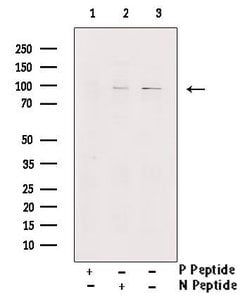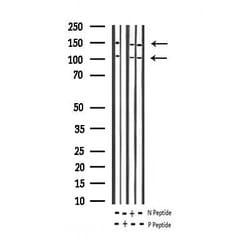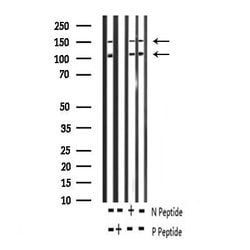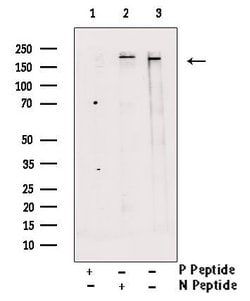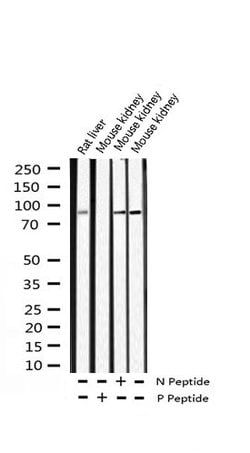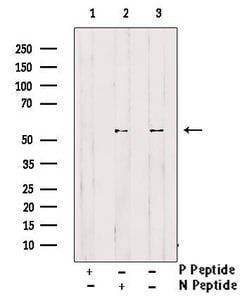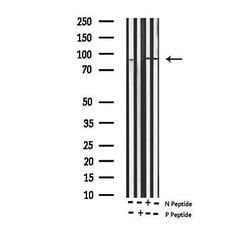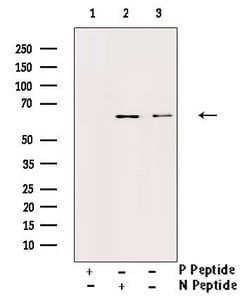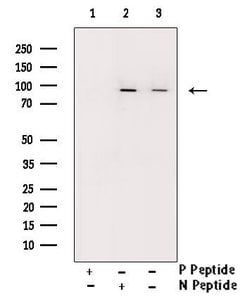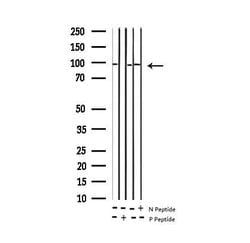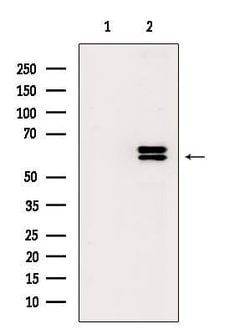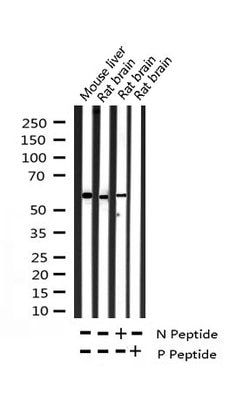Phospho-INSR (Tyr1355) Polyclonal Antibody, Invitrogen™
Manufacturer: Thermo Scientific
Select a Size
| Pack Size | SKU | Availability | Price |
|---|---|---|---|
| Each of 1 | PIPA5104753-Each-of-1 | In Stock | ₹ 46,502.50 |
PIPA5104753 - Each of 1
In Stock
Quantity
1
Base Price: ₹ 46,502.50
GST (18%): ₹ 8,370.45
Total Price: ₹ 54,872.95
Antigen
Phospho-INSR (Tyr1355)
Classification
Polyclonal
Conjugate
Unconjugated
Gene
INSR
Gene Alias
4932439J01Rik; CD 220; CD220; CD220 antigen; CD220 beta; CD221; D630014A15Rik; HHF 5; HHF5; IGF-I receptor; INSR; Insulin receptor; insulin receptor preproprotein; Insulin receptor subunit alpha; Insulin receptor subunit beta; IR; IR 1; IR beta; IR1; IR-1; IR-A; IR-B
Host Species
Rabbit
Purification Method
sequential chromatography
Regulatory Status
RUO
Gene ID (Entrez)
24954, 3643
Content And Storage
-20°C
Form
Liquid
Applications
Immunocytochemistry, Immunohistochemistry (Paraffin), Western Blot
Concentration
1 mg/mL
Formulation
PBS with 50% glycerol and 0.02% sodium azide; pH 7.4
Gene Accession No.
P06213, P15127
Gene Symbols
INSR
Immunogen
A synthesized peptide derived from human INSR(Accession P06213), corresponding to amino acid residues around phosphorylated Tyr1355.
Quantity
100 μL
Primary or Secondary
Primary
Target Species
Human, Rat
Product Type
Antibody
Isotype
IgG
Description
- Antibody detects endogenous levels of IR only when phosphorylated at Tyrosine 1355
- INSR is a receptor tyrosine kinase
- Binding of insulin to the extracellular domain of INSR stimulates glucose uptake
- INSR and IGF-1 receptors share major structural and functional similarity
- The earliest cellular response to insulin stimulation is autophosphorylation of tyrosine in INSR
- In humans, the INSR gene is located on chromosome 19
- Defects in INSR are the cause of various insulin resistance syndromes and IGF-1R defects may also cause some forms of growth retardation.
